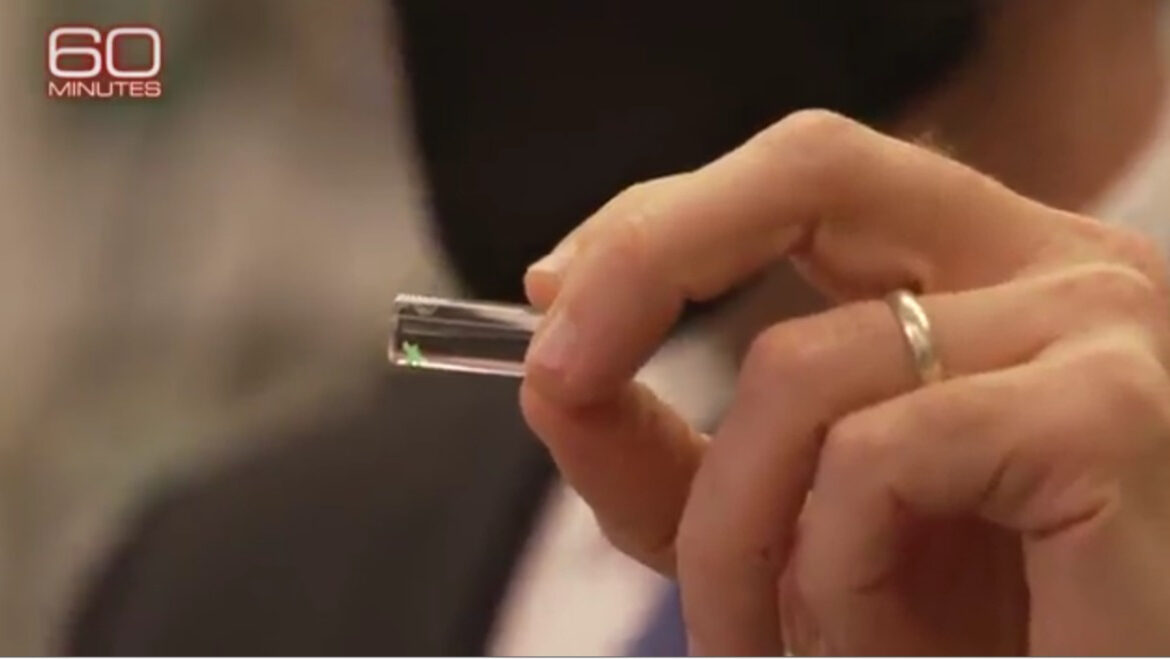
An army infectious disease physician, he spent years with the secretive defense advanced research projects agency or DARPA, working on technology he hopes will ensure COVID-19 is the last pandemic. Eight years ago, Dr. Hepburn was recruited by DARPA.
Dr. Matt Hepburn: The DARPA director was very clear. “Your mission is to take pandemics off the table.
Dr. Hepburn showed us a few current projects, some sound like they’re from an episode of “Star Trek.” Consider a ship like the USS Theodore Roosevelt — hobbled last year when 1,271 crew members tested positive for the coronavirus. What if everyone on board had their health monitored with this subdermal implant, now in late-stage testing. It’s not some dreaded government microchip to track your every move, but a tissue-like gel engineered to continuously test your blood.
Transcript:
Dr. Matt Hepburn: It’s a sensor.
Bill Whitaker: This tiny green thing in there?
Dr. Matt Hepburn: That tiny green thing in there, you put it underneath your skin and what that tells you is that there are chemical reactions going on inside the body and that signal means you are going to have symptoms tomorrow.
Bill Whitaker: Wow. There’s an– an actual transmitter in that–
Dr. Matt Hepburn: Yeah. It’s like a “check engine” light.
Bill Whitaker: Check this sailor out before he infects other people?
Dr. Matt Hepburn: That’s right.
Sailors would get the signal, then self-administer a blood draw and test themselves on site.
Dr. Matt Hepburn: We can have that information in three to five minutes.
Dr. Matt Hepburn: As you truncate that time, as you diagnose and treat, what you do is you stop the infection in its tracks.
Dr. Matt Hepburn: This is a filter that you can put on a dialysis machine.
“Patient 16”, a military spouse, was in the ICU, near death with organ failure and septic shock when she was entered into a Defense Department COVID-19 study. Her family allowed us to witness the experimental 4-day treatment.
Dr. Gaeta: She’s liberated from veso-active medications and her septic shock resolved. We also see improvements in her markers of inflammation. Those are all positive prognostic signs.
Bill Whitaker: You pass someone’s blood through this–
Dr. Matt Hepburn: You pass it through–
Bill Whitaker: –it takes the virus out
Dr. Matt Hepburn: Takes the virus out, and puts the blood back in.
Within days, Patient 16 made a full recovery. The FDA has authorized the filter for emergency use. So far, doctors have used it to treat nearly 300 critically ill patients.

